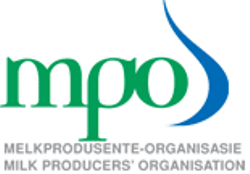The National Water Act, No. 36 of 1998, (NWA) provides the legal framework for the effective and sustainable management of our water resources. The Act gives the National Government – Department of Water and Sanitation (DWS) overall responsibility for and authority over the nation’s water resources: to manage the use of water; protect water quality; allocate water and promote the integrated management of water resources with the participation of all stakeholders.
The cost involved in developing and managing the water resource so that it is protected and conserved for beneficial use is generally recovered from water users by means of water use charges.
How are water use charges determined?
Section 56 – 60 of the NWA allows the Minister of Water and Sanitation to develop a strategy for calculating water use charges – a pricing strategy which is established by a notice in the Government Gazette. Water use charges fund the following:
- Water resource management which includes all activities to monitor, allocate, control, protect and conserve water resources.
- Development of water resources – planning, design, construction and maintenance of water works.
- Distribution of water.
- Equitable and efficient allocation of water.
What is addressed by the pricing strategy?
- The manner in which different water areas, water use and water users are categorised to ensure equity.
- Charges to be paid by water management institutions and consumers.
- Provision for rebates (partial refunds).
- Provision for specific users not having to pay certain charges.
- Manners to promote efficient and beneficial use of water.
- Manners to minimise harmful effects on water resources.
- Manners to prevent water wastage.
- Ways to support municipalities (water services authorities) in establishing tariffs for the provision of water services.
The pricing strategy applies only to:
The use of raw (untreated) water/the use of a water resource for which charges are set by the DWS and other water management institutions established in terms of the Act.
The Water Services Act deals with treated water supplied in bulk and distributed to households.
The pricing strategy obtains equity through the manner in which it differentiates between different types of water uses and water users. For example, the pricing strategy can establish different charges for good quality and poor quality water. It can also set different charges for different types of waste discharge based on the impact of the discharge on the water resource.
How is water use differentiated?
Water use is differentiated based on:
- how it is taken from the resource
- how it is supplied
- how it is discharged or disposed of
- the reliability of the supply
- water quality
- the impact of returned water on the resource
- the water resource used
How are water users differentiated?
Water users are differentiated based on:
- volume of water use
- volume of water returned to the resource by the user
- economic circumstances of the user
The objectives used to formulate the pricing strategy are:
- Social equity
- Ecological sustainability
- Financial sustainability
- Economic efficiency.
Types of water charges
The current pricing strategy allows for four types of water charges:
- Water resource management charge
All registered and licensed water users will be billed for a water resource management charge. This consists of the costs of managing and regulating the water resource which includes the cost of registering users, issuing licences, setting the Reserve, measuring the flow in rivers, quality testing, pollution control and water conservation management.
- Water resource development charge
This charge is used to fund the costs of planning, designing, constructing and operating and maintaining water supply schemes, such as dams, canals, and tunnels that are used to store or supply water. It includes the capital costs associated with constructing the water scheme and also the operating costs which are the annual running costs.
Government will only bill users for the water resource development charge if the users are supplied water from a Government Water Scheme.
- Charge for achieving efficient allocation of water (economic charge)
This charge may be levied where there is a high demand to promote water conservation and enhanced productive use of water (for example irrigation of high-value crops).
- Charge for discharging waste
The charge for discharging waste is a charge for discharging waste water or water containing waste into a river and is based on the “users and polluters pay” principle.
National Water Act
http://www.dwaf.gov.za/Documents/Legislature/nw_act/NWA.htm
Guide to the National Water Act
http://www.dwaf.gov.za/documents/publications/NWAguide.pdf
A pricing strategy for raw water use charges
http://www.dwa.gov.za/io/Docs/Water%20Resource%20Finance/Pricing%20Strategy.pdf
Published on Tuesday, 29th August 2017 - 22:43
Recent Posts
disclaimer









